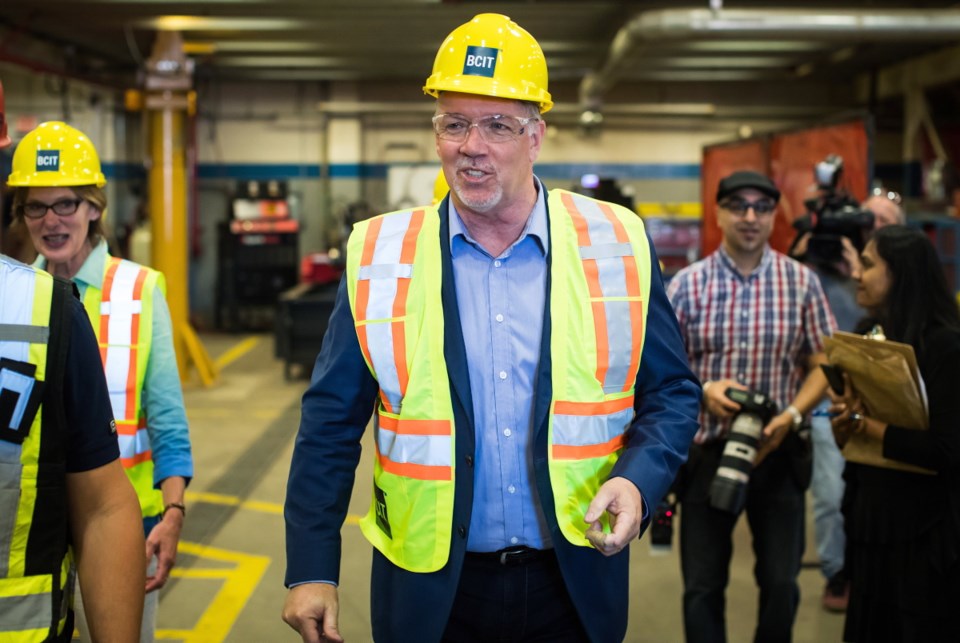Every party has brand mistakes. Own goals that it, and no other party, is particularly prone to make.
Consider: It would be legitimately surprising to see a Conservative espousing sympathy for Hugo Chavez, Hamas or Kim Jong Un.
With every major party, there’s an established public narrative. It’s not always fair, but political strategists will admit (usually over drinks) that on certain issues, they’re swimming against the tide. You’ll recognize them almost instinctively, even if you think they’re unfair: The NDP is anti-business, Conservatives anti-diversity and Greens anti-shampoo.
It’s amazing how often certain party animals play down to type. For example, when you heard that a certain party’s former frequent candidate was on trial for denying the Holocaust, how many guesses did it take to land on “Green”? (Be honest.) And if you think I’m being cute about my own past political career, the infamous “I’m entitled to my entitlements” could only have come from a federal Liberal.
This is true of parties in government, too. In B.C. right now, that means the NDP, and thus, the kind of mistakes that only NDP governments are likely to make — in this case, 1960s-style statism.
To the anonymous Twitter accounts already typing in anger, yes, we agree: Some government intervention can be a good thing. Only the barest fringe would do away with single-payer health care.
If it’s not economically viable for Greyhound (or whoever) to connect small towns in Western Canada, then it’s worth exploring some form of government-supported or supplied service. And it would be unfair not to mention NDP creations such as the Agricultural Land Reserve and ICBC — in the news for all the wrong reasons lately, but hardly unmitigated failures.
Still, it’s hard to see the NDP deciding to make it mandatory to join an NDP-approved union, and not see a uniquely NDP-brand mistake — a triumphal overreach that will almost certainly haunt them.
First, it might not hold up. The Independent Contractors and Business Association has suggested it will launch a legal challenge. (In the interests of disclosure, I do contract work for ICBA.)
There is some precedent for mandatory unionization — but it’s incredibly dicey. In 2001, after years of fractious relations within Quebec’s construction industry, the provincial government required contractors to hire only construction workers who belonged to one of five approved unions.
The law was immediately challenged as unconstitutional, and it’s not hard to see why: Section 2d of the Canadian Charter of Rights and Freedoms enshrines freedom of association, and against forced ideological conformity.
Yes, the legislation narrowly survived (a ruling of five to four), but on the barest of grounds — that it stabilized “violent relations” within the industry, and, much less formally, that Quebec gets to do whatever what it wants. But as Judy Fudge, University of Victoria’s Lansdowne chair in law, wrote: “Significantly, eight members of the court interpreted the freedom of association as including the right not to associate. A slight majority considered that mandatory union membership violated that right.”
As always, the lawyers will sort out the legal bits. We’re left with the political ramifications, and it’s hard to see a long-term win here. Yes, the big unions that support the NDP will be ecstatic — they couldn’t have written more egregious favouritism themselves — but the modern NDP isn’t just a labour movement anymore.
One crucial component of the voting coalition that got them into government is urban millennials, who understand the gig and sharing economy at least as well as the average tradesperson. As a cohort, they overwhelmingly do not belong to unions, aren’t seeking to join one and probably wouldn’t much like being forced to join one.
That doesn’t even take into account the NDP’s Green partners, who have quietly shown unusual resolve on labour issues, including a thorough and non-negotiable rejection of NDP proposals to eliminate the secret ballot for union certification. It’s hard to square that with mandatory unionization.
For the moment, the NDP is having its way, and the unions are no doubt popping champagne. But forcing people to join against their will isn’t a good look — and they might be surprised who won’t react well.
Maclean Kay was former premier Christy Clark’s speechwriter for five years.



